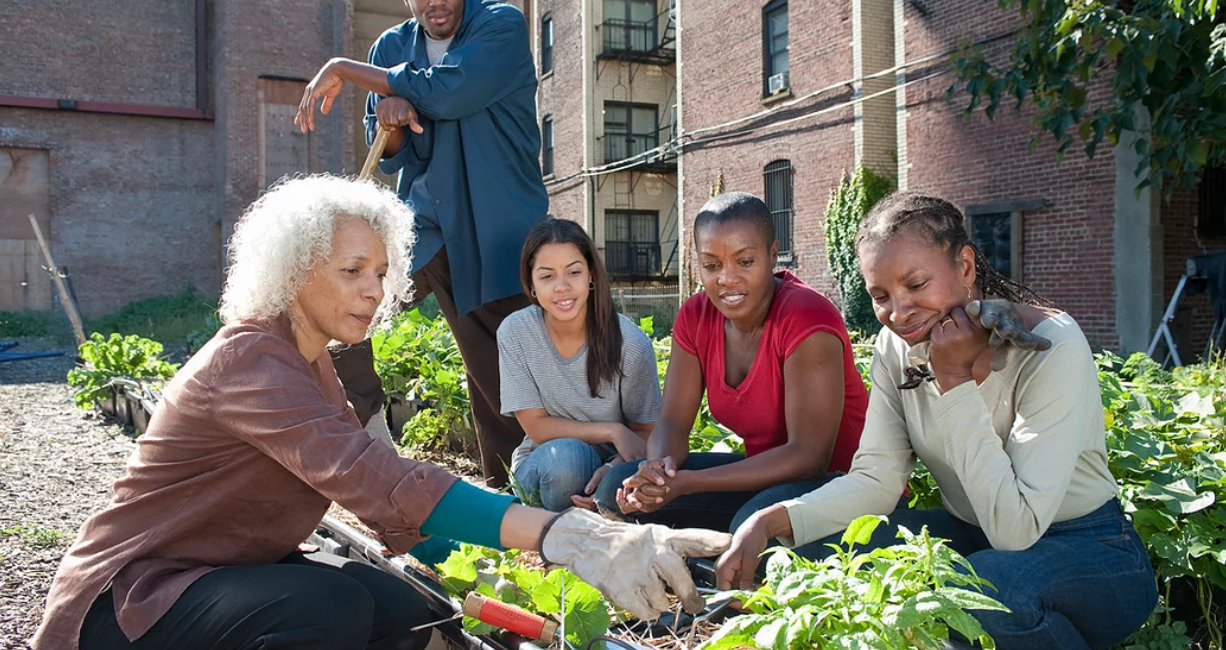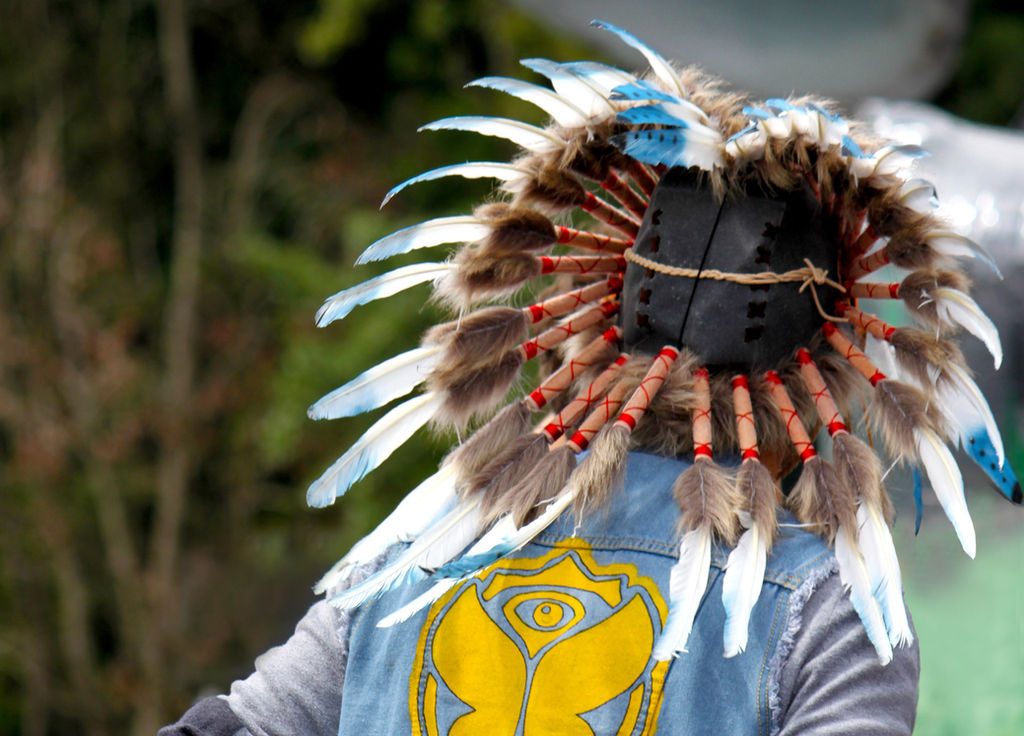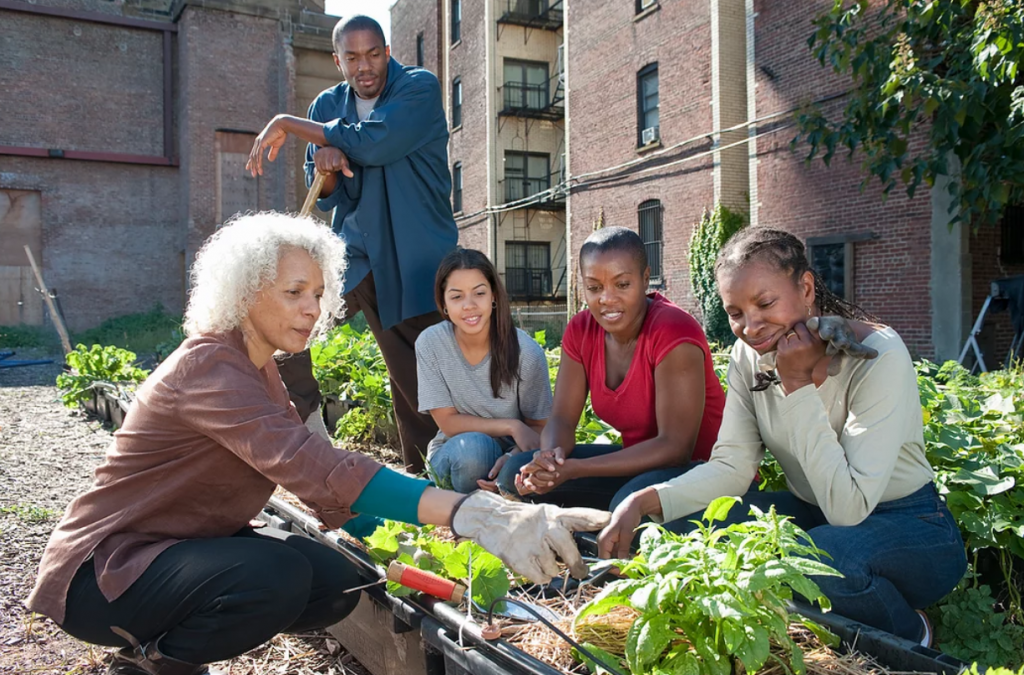
By Dr. Phyllis Hubbard
Welcome back. In this chapter, we explore a bit of the history that influenced how and where people of color have fallen away from nature in the western world. Let’s begin.
How We Fell Away From Nature
Oppressive techniques were implemented to disrupt how enslaved/colonized people interacted with themselves, community, and nature. Because so much of the life of enslaved people involved abuses that occurred in nature, such as their horrific journey through the middle passage, being lynched from/whipped while tied to trees, picking cotton, etc., many enslaved people were gradually trained to fear nature.
In order for Black, Brown and Immigrant communities to fall back into self-care, we’ll need to reconnect to our true selves, which includes releasing the need to colorize Eurocentric folklore and stories. I recommend investing our time in the exploration, celebration and sharing of the many stories that have not been told.
Why We Fell Away From Nature
For similar reasons, and throughout each generation, colonization of Black, Brown, and Immigrant people includes strategies that disrupt the natural connection so inherent within us (and to the point that we eventually abandon those connections) such as:
☥ Shaming something about our culture
☥ Aggressively marketing a stereotype to make us appear dangerous, unworthy, etc. or to keep us away from something that colonizers want to hoard
☥ Continuous advertising, that targets us in early childhood, designed to present Africa or our home countries as a wasteland full of starving people plagued with corruption:
☥ To scare us away from visiting the places of our ancestors for fear of violence, catching a disease, etc.
☥ To further perpetuate the idea that we are inferior and come from places that are shameful/embarrassing
☥ To promote the fallacy that we are in need of rescuing by our colonizers
☥ Minimizing something that demonstrates our excellence until we are too embarrassed to continue to practice/cultivate it; then it is stolen, diluting its essence (the only way it can be duplicated/mass-marketed) and the watered-down version of it is soled back to us (often through the use of ad nauseam advertising using manipulative techniques e.g. the misuse of psychological anthropology) in order to profit from us financially, keep certain resources for themselves, etc
Each group has had its cross to bear, but although Jews and Italians and Irish and all the other mingling European races could look forward to assimilating, assimilation was practically impossible for African Americans. The indelible marking of skin color made it so.
☥ William C. Rhoden (From: “Forty Million Dollar Slaves: ☥ The Rise, Fall, and Redemption of the Black Athlete”)
Where We Fell Away From Nature
The strategies that disrupt the natural connections of Black, Brown and Immigrant people also included tactics such as:
☥ The continuous ridicule of aspects of our culture that connects us to ourselves such as our language and colloquiums, manner of dress and speech, use of traditional or cultural clothing, spiritual practices, hairstyles, etc.
☥ Setting up hateful dynamics, fueled by living in survival mode, which causes us to unconsciously engage in culturally cannibalizing behaviors and rewards us for ridiculing other cultures – the hypocrisy of which demonstrates how embedded the techniques of colonization and oppression can be within our psyche, the power of psychological manipulation and its impact on future generations
☥ Marketing campaigns, propaganda, public shaming, and bullying (i.e. not hiring someone because of their ethnic name/traditional style of their hair) validates/forces acquiesce under duress to all aspects of Eurocentric culture and traditions in order to earn enough income to feed our families
In today’s world, zoning regulations and other oppressive systems and structures force many lower-income Black, Brown, and Immigrant people to live in “concrete jungles.” Consider how some of these dynamics continue to show up in our everyday lives:
☥ One community organization, that started a garden at an inner-city school, reported that it took almost two years to get the students to eat the food that they grew because they had never seen food coming out of the ground.
☥ During my BMA Health and Healing Strategies collaboration (functioning within the now sunset Campaign for Black Male Achievement) with the Oakland Unified School District‘s African American Achievement Program, an educator, working with the Kingmakers of Oakland, shared that once the young Black males began to accept being called “kings,” the Manhood Development Program Facilitators had to diligently train the young kings to push past the resistance from the Black female students who struggled to see themselves as “queens.”
The collaboration with Oakland Unified School District, Sacramento City Unified School District and other schools across the nation is documented in “Health Promotion for Adolescent Boys & Men of Color: Global Strategies for Advancing Research, Policy and Practice in Context,” a book that will be published through the University of Michigan, Georgetown University and The Menzies School of Health Research (Australia).
Falling Far Away From Nature
This conundrum is deeply connected to the dehumanizing/devaluing concepts infused into hip-hop music and culture. During the late ’80s, I attended a work event where I met a few excited white venture capitalists. I was shocked to hear that they were investing in hip hop music because their enthusiasm was a staunch 180-degree turn from the ridicule I heard in high school from white students, teachers, and the community at large (i.e. hip hop was not real music). In fact, hip hop was not validated as a category of music at The Grammy Awards until 1989. Because I was struggling to pay for my college education, I was too busy working long hours and studying to listen to popular music.
Something that the white male investors said haunted me until I finally tuned in to some music videos to investigate their keen interest. They said that they wanted to help Black people tell our stories and let the world know what is really happening in our communities. This statement utterly confused me because up until that moment, hip-hop artists such as Grandmaster Flash and The Furious Five had been sharing truths about challenges in the Black community. At first, I was excited that we would finally receive some resources to empower ourselves and create higher-quality music videos that could compete with other artists on platforms such as MTV.
The capacity to be alone is the capacity to love. It may look paradoxical to you, but it’s not. It is an existential truth: only those people who are capable of being alone are capable of love, of sharing, of going into the deepest core of another person–without possessing the other … Their happiness cannot be taken by the other, because it is not given by the other.
☥ Osho




